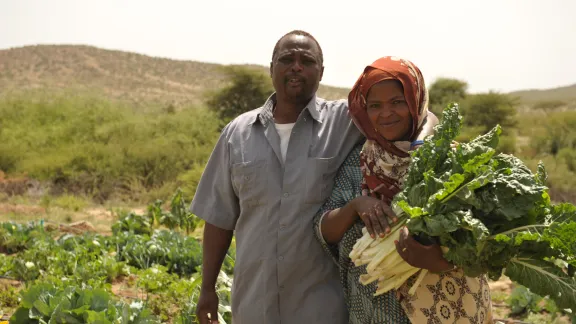
Abduleh Hasan and his wife Shukri show some of their harvest. Photo: LWF/C.Kaestner
Livelihoods project improves relations between refugees and hosts in Ethiopia.
The refugees have changed the life of Mahmud Ismael Merdane (65), an Ethiopian farmer in Awbarre town, close to the Somali border.
Merdane is a participant in a farming livelihoods project of The Lutheran World Federation (LWF) in Awbarre refugee camp. He is not a refugee though, but a resident of the local town, the host community. He has given land to refugees for farming, and received seeds, tools and irrigation farming training in return.
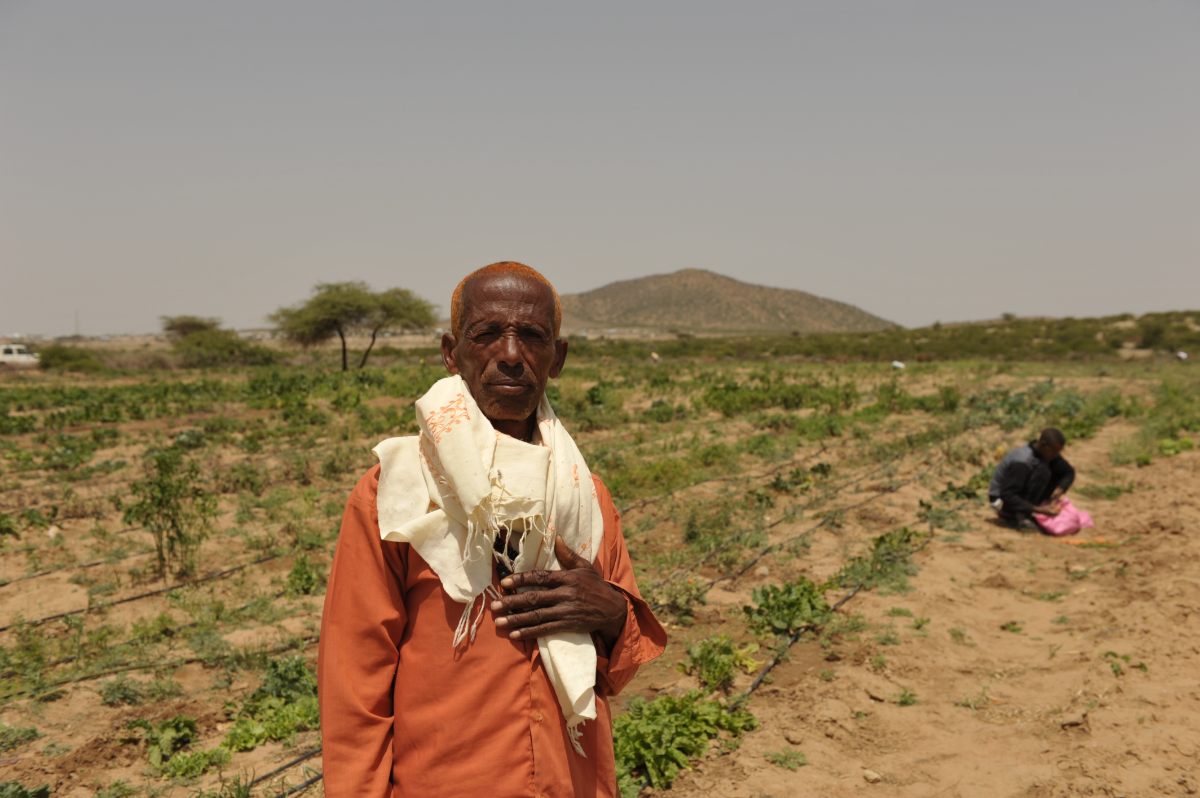
Mahmud Ismael Merdane from the Awbarre host community. All Photos: LWF/C.Kaestner
“I mostly used the land for grass and khat,” he recalls. Khat is an evergreen shrub plant whose leaves are chewed as a stimulant. It is traded widely to neighboring countries, but does little to improve the local food situation. Now peppers, carrots and onions grow on Merdane’s plot. Instead of trading khat leaves, his family has fresh food.
Land and training
The influx of Somali refugees into the Jijiga region started in 2007. Awbarre and Shedder refugee camps were established in 2007 and 2008 respectively. 15,000 people settled around Merdane’s home town in Eastern Ethiopia, close to the border with Somalia.
The new arrivals had fled terror and civil war. Some of them had been farmers before, like Abduleh Birro Hasan (40), who arrived in 2008.
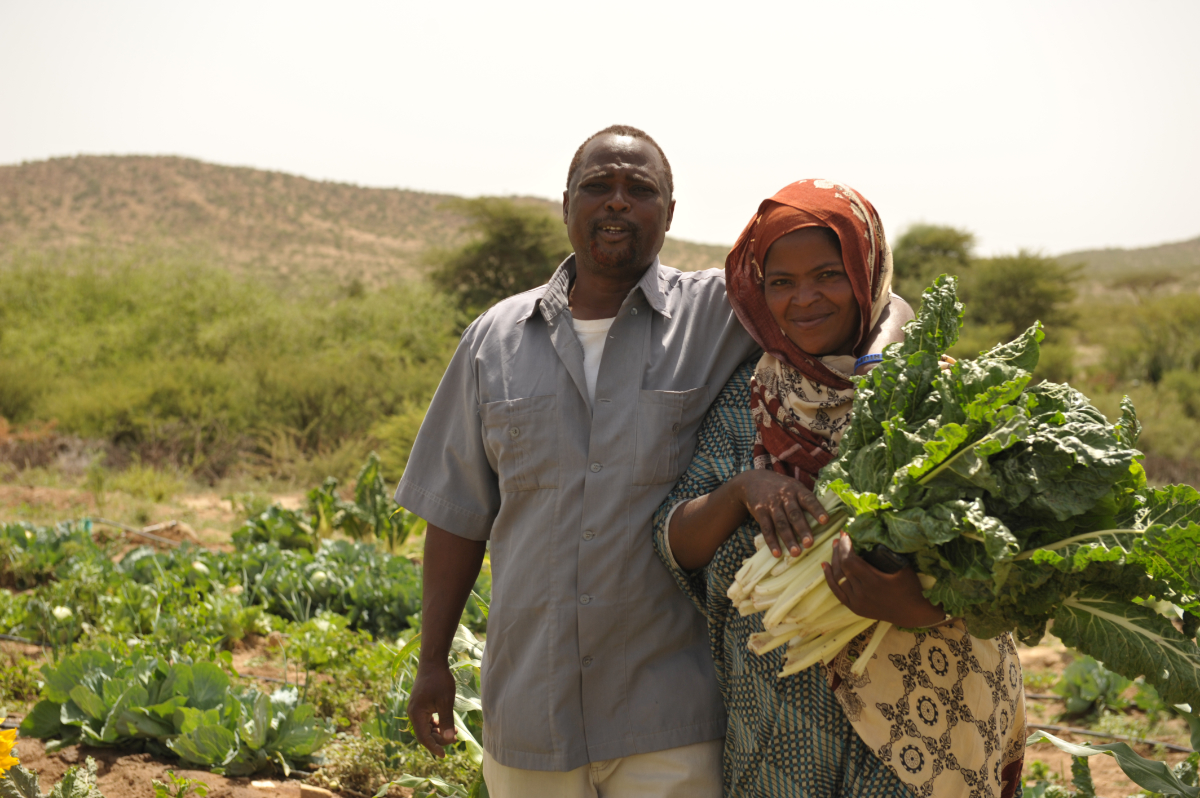
Abduleh Hasan and his wife Shukri show some of their harvest.
Hasan could bring nothing of what he had owned in Somalia – a farm, mango trees, vegetable fields and honey bees. Even his elderly mother and some of his children had to stay behind. The last time he heard from them was years ago. He did however bring his knowledge as a farmer, and a motivation to produce his own food.
Like Merdane, Hasan, his wife Shukri and his family are now beneficiaries of the LWF livelihoods project. The Somali farmer was allocated part of the land Mahmud Merdane had so generously provided, tools and seeds, and the same irrigation training as the participants of the host community.
Introducing irrigation
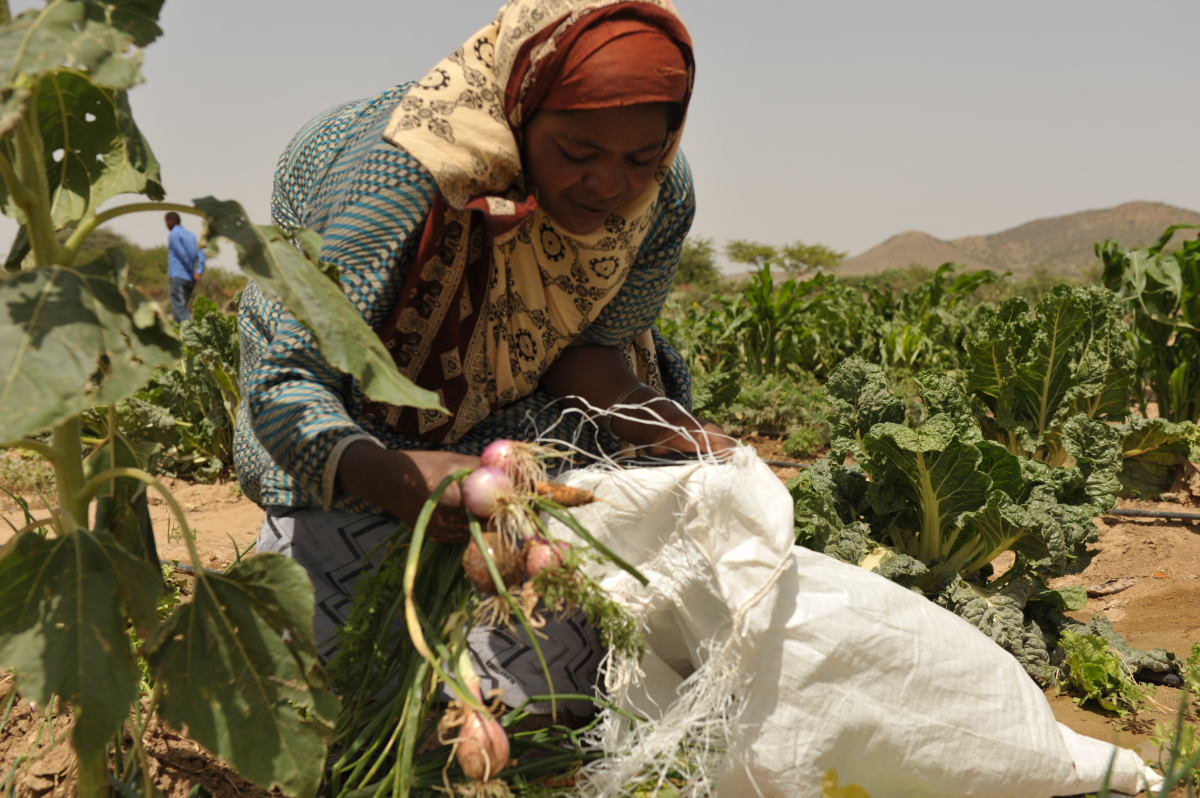
At the end of July, the plants on Hasan’s plot stand taller than on most other fields. “I am a farmer, I know when to plant and when to harvest, and how to care for the plants”, he says proudly. “That’s why I do better than others.”
Like everyone in the settlement he has to deal with irregular and even failing seasonal rains and drought. Having experience as a farmer however, he quickly understood that the drip irrigation introduced by LWF would remedy that problem. “The borehole which LWF constructed makes me independent of the rainfalls. I can sow already before the rain starts, and harvest sooner.”
Peace and empowerment
The LWF project, funded by the United States Bureau of Population, Refugees and Migration (BPRM) and the United Nations High Commissioner for Refugees (UNHCR), aims to build and enhance existing skills of people in long-term refugee situations to improve their livelihoods. The host communities are included in the project to ease the strain of a large refugee settlement on a small town, and to foster peaceful co-existence.
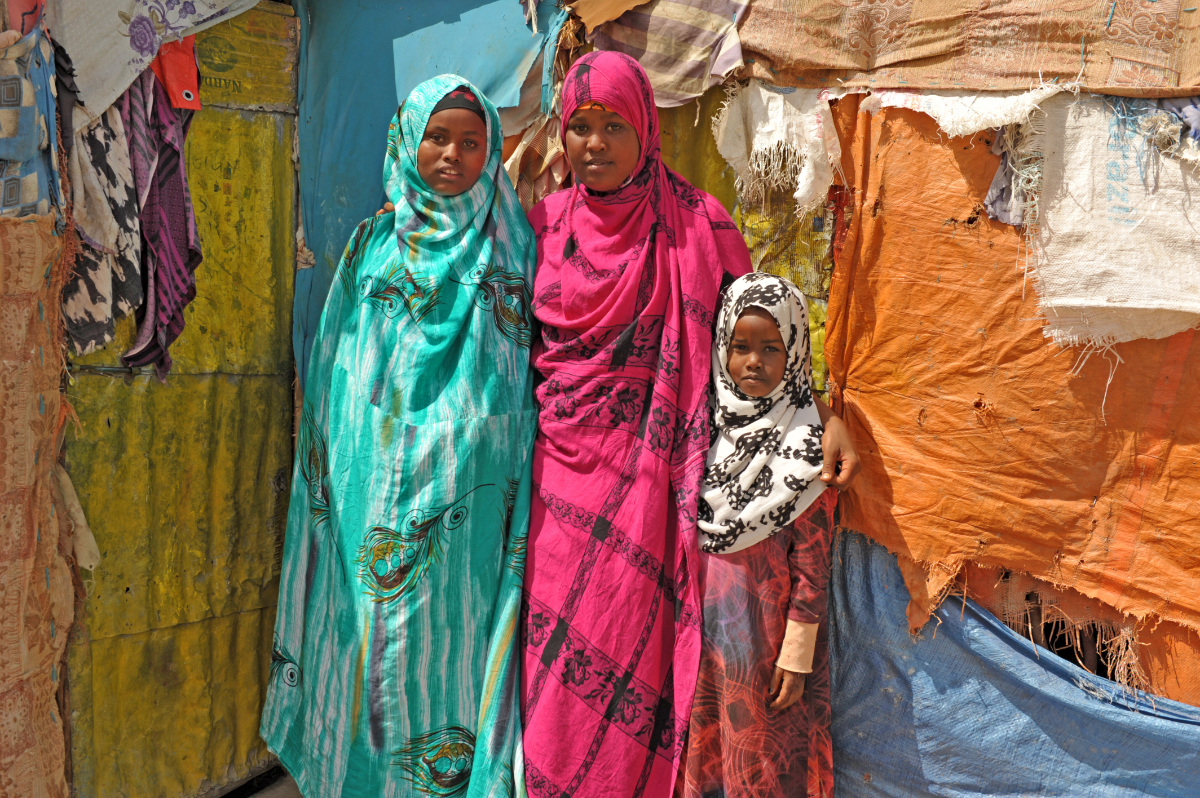
Women’s empowerment is part of the project design. In this case, the income of poultry farming pays these girl’s school fees.
The new arrangement also empowers the women in the community, as LWF Country Representative Sophia Gebreyes explains: “Khat, a rather highly marketable and lucrative commodity, is managed mainly by men.” Men farm and sell the leaves, and decide how to use the proceeds from the sale.
Vegetables and food crops on the other side are traditionally managed by women. “Since the community agreed to change to vegetables and food crops, it gave more power to the women, who tend to use the money more for the family - in addition to the vegetables and crops.”
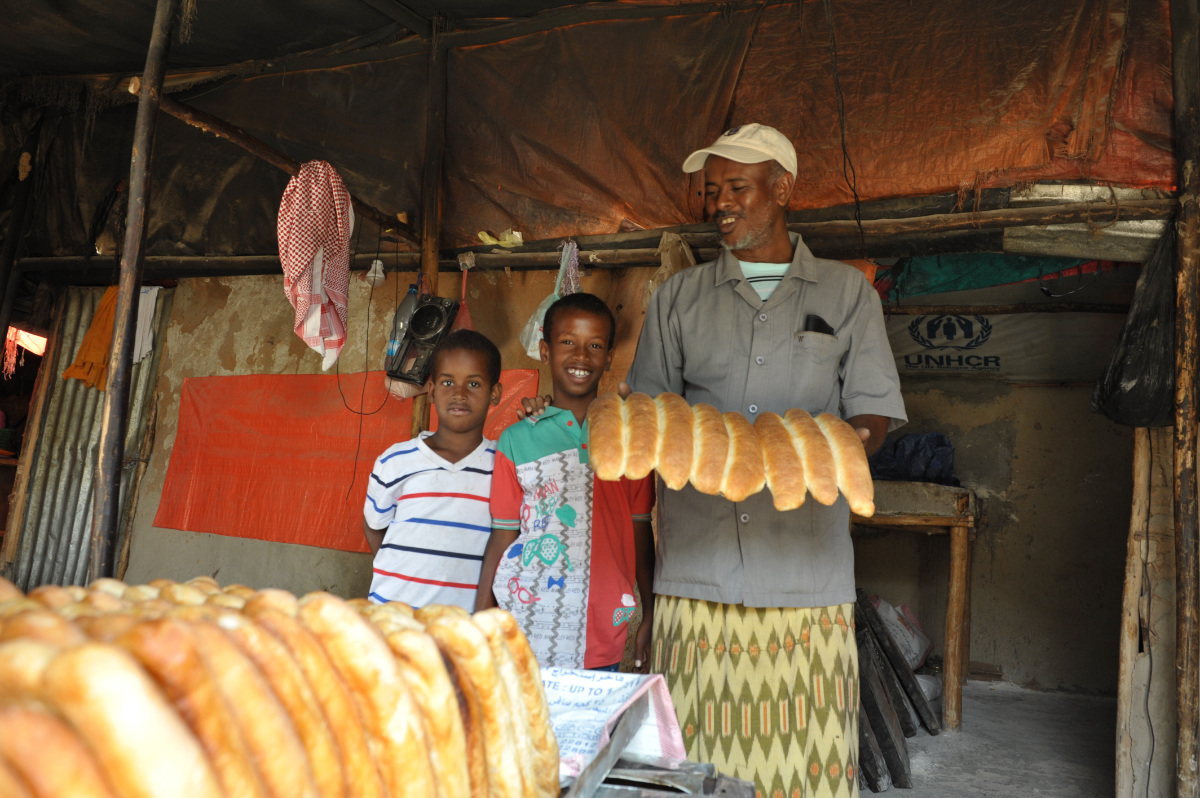
Mustafe Jama with two of his sons in his home bakery.
Not everyone is cut out for farming. Mustafe Jama, a driver from Mogadishu, left home in 2008 when a gang stole his car and tried to kill him. He escaped with his family and a gunshot wound in his leg. Now, thanks to LWF training, he bakes bread for the settlement.
Invest in the future
Yusuf Mohamed Ali, 42, father of nine children, started poultry farming. The initial number of 12 chicken given to him by LWF has doubled, the income from selling eggs and sometimes meat in the market pays for his daughter’s school fees. The improved nutrition of the family is an added bonus.
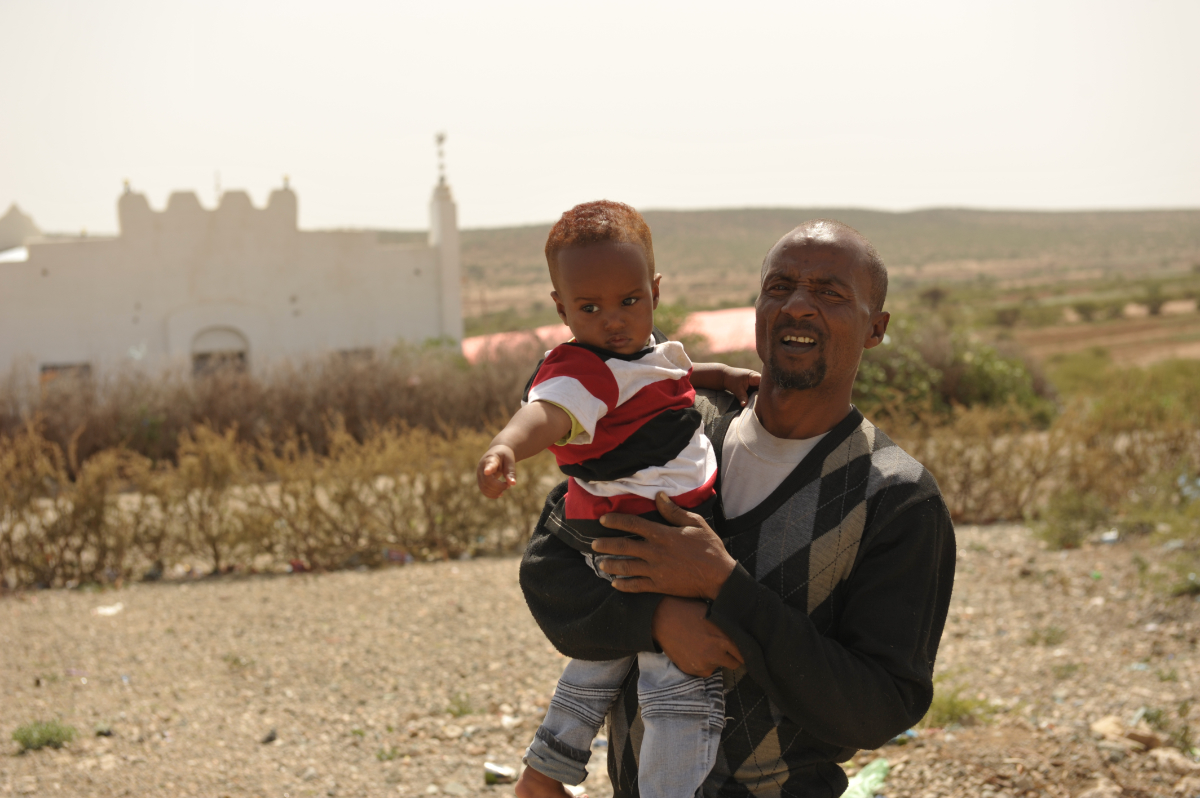
Yusuf Mohamed with his youngest child. The project supports his family of 11.
All project participants divide their earnings, keep part for their own consumption and part for investment. Hasan wants to expand the farm and open a small shop for his wife. Yusuf Mohamed hopes to save the money to pay for higher education for his children. The project built business relations with the host community, people like Merdane who says the new farming activity improved his life and that of his family.
I benefitted from sharing my land. The refugees and us, we live well together. They are welcome here, and if they need to stay another ten years, I would always give them the land again.
The project for livelihoods in Jijiga, Ethiopia is funded by the United States Bureau for Population, Refugees and Migration and the United Nations High Commissioner for Refugees. Another project year will be starting in September 2017.


